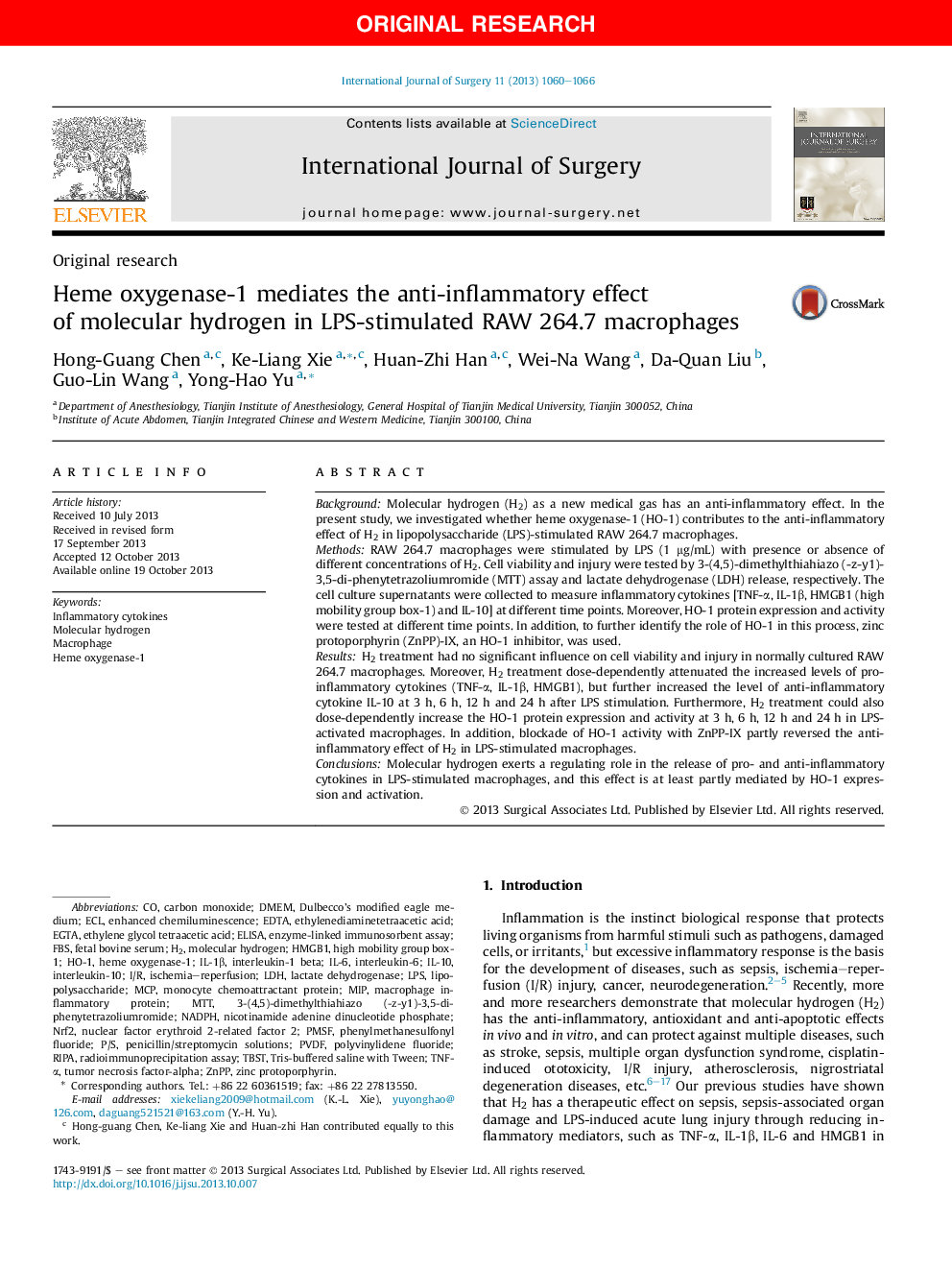| Article ID | Journal | Published Year | Pages | File Type |
|---|---|---|---|---|
| 4286083 | International Journal of Surgery | 2013 | 7 Pages |
BackgroundMolecular hydrogen (H2) as a new medical gas has an anti-inflammatory effect. In the present study, we investigated whether heme oxygenase-1 (HO-1) contributes to the anti-inflammatory effect of H2 in lipopolysaccharide (LPS)-stimulated RAW 264.7 macrophages.MethodsRAW 264.7 macrophages were stimulated by LPS (1 μg/mL) with presence or absence of different concentrations of H2. Cell viability and injury were tested by 3-(4,5)-dimethylthiahiazo (-z-y1)-3,5-di-phenytetrazoliumromide (MTT) assay and lactate dehydrogenase (LDH) release, respectively. The cell culture supernatants were collected to measure inflammatory cytokines [TNF-α, IL-1β, HMGB1 (high mobility group box-1) and IL-10] at different time points. Moreover, HO-1 protein expression and activity were tested at different time points. In addition, to further identify the role of HO-1 in this process, zinc protoporphyrin (ZnPP)-IX, an HO-1 inhibitor, was used.ResultsH2 treatment had no significant influence on cell viability and injury in normally cultured RAW 264.7 macrophages. Moreover, H2 treatment dose-dependently attenuated the increased levels of pro-inflammatory cytokines (TNF-α, IL-1β, HMGB1), but further increased the level of anti-inflammatory cytokine IL-10 at 3 h, 6 h, 12 h and 24 h after LPS stimulation. Furthermore, H2 treatment could also dose-dependently increase the HO-1 protein expression and activity at 3 h, 6 h, 12 h and 24 h in LPS-activated macrophages. In addition, blockade of HO-1 activity with ZnPP-IX partly reversed the anti-inflammatory effect of H2 in LPS-stimulated macrophages.ConclusionsMolecular hydrogen exerts a regulating role in the release of pro- and anti-inflammatory cytokines in LPS-stimulated macrophages, and this effect is at least partly mediated by HO-1 expression and activation.
